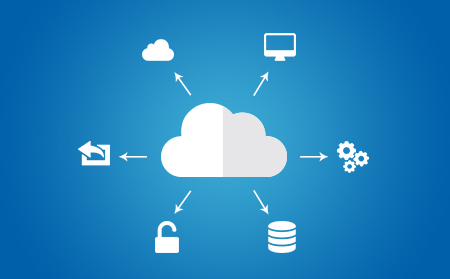Utilize Cloud Services for Enhanced Data Protection
Leveraging cloud services provides a compelling service for companies looking for to strengthen their data safety measures. The question emerges: just how can the usage of cloud services reinvent data safety practices and provide a robust shield against possible vulnerabilities?
Relevance of Cloud Protection
Making certain robust cloud safety and security steps is paramount in protecting delicate information in today's digital landscape. As organizations progressively count on cloud solutions to save and refine their information, the demand for solid security protocols can not be overemphasized. A breach in cloud safety can have severe repercussions, ranging from monetary losses to reputational damage.
One of the primary reasons that cloud security is critical is the shared duty version used by many cloud service carriers. While the supplier is liable for securing the facilities, consumers are responsible for protecting their data within the cloud. This division of duties emphasizes the importance of applying durable safety and security measures at the user level.
Moreover, with the proliferation of cyber hazards targeting cloud environments, such as ransomware and data breaches, organizations must stay positive and attentive in mitigating risks. This involves consistently upgrading safety and security methods, keeping track of for questionable activities, and educating workers on best methods for cloud safety. By prioritizing cloud safety and security, companies can much better safeguard their delicate data and promote the trust fund of their stakeholders and clients.
Data File Encryption in the Cloud

Encryption in the cloud generally includes the usage of cryptographic formulas to rush information into unreadable layouts. Furthermore, lots of cloud solution companies offer file encryption mechanisms to protect information at rest and in transportation, improving total information security.
Secure Data Back-up Solutions
Data back-up services play a vital duty in ensuring the strength and safety and security of information in the occasion of unforeseen cases or information loss. Safe and secure information backup remedies are necessary parts of a durable information safety and security technique. By routinely backing up data to secure cloud servers, companies can mitigate the threats related to data loss due to cyber-attacks, hardware failings, or human error.
Implementing safe data backup remedies involves selecting reliable cloud service providers that supply file encryption, redundancy, and information stability measures. Additionally, information integrity checks ensure that the backed-up data stays unaltered and tamper-proof.
Organizations ought to establish computerized back-up timetables to guarantee that data is constantly and efficiently backed up without hand-operated treatment. Routine screening of data restoration procedures is site here likewise critical to assure the performance of the backup remedies in recovering information when needed. By spending in safe and secure data backup services, businesses can improve their information protection pose and lessen the impact of potential data violations or disruptions.
Function of Gain Access To Controls
Carrying out rigid accessibility controls is imperative for keeping the protection and honesty of delicate info within business systems. Accessibility controls act as a crucial layer of protection versus unauthorized access, guaranteeing that just licensed individuals can watch or manipulate sensitive data. By specifying who can access certain sources, organizations can restrict the risk of data violations and unauthorized disclosures.

Routinely evaluating and upgrading accessibility controls is necessary to adapt to business adjustments and developing safety and security threats. Continual surveillance and bookkeeping of access logs can help spot any kind of dubious tasks and unauthorized gain access to attempts promptly. Overall, robust gain access to controls are basic in protecting sensitive details and mitigating safety dangers within business systems.
Compliance and Regulations
Frequently ensuring conformity with appropriate laws and standards is important for companies to support data protection and personal privacy steps. In the my sources world of cloud services, where information is commonly saved and refined externally, adherence to industry-specific regulations such as GDPR, HIPAA, or PCI DSS is essential. These regulations mandate particular information managing methods to secure delicate details and make sure customer privacy. Failing to follow these regulations can cause extreme charges, consisting of fines and lawful activities, harming an organization's track record and trust.
Lots of service providers provide file encryption capabilities, accessibility controls, and audit routes to help companies meet data security criteria. By leveraging compliant cloud solutions, companies can improve their information security posture while fulfilling regulatory responsibilities.
Conclusion
In final thought, leveraging cloud services for improved information protection is essential for organizations to secure delicate information from unauthorized access and prospective violations. By executing robust cloud safety procedures, consisting of information file encryption, safe and secure backup options, accessibility controls, and conformity with policies, businesses can gain from innovative safety steps and proficiency offered by cloud service suppliers. This helps minimize dangers effectively and makes certain the confidentiality, integrity, and accessibility of information.

Data backup remedies play an important role in guaranteeing the strength and safety and security of data in the occasion of unanticipated events or information loss. By frequently backing up information to protect cloud servers, organizations can reduce the dangers linked with this page information loss due to cyber-attacks, hardware failures, or human mistake.
Executing safe information backup services involves picking trustworthy cloud service carriers that provide file encryption, redundancy, and information integrity procedures. By investing in secure information backup services, services can enhance their information protection posture and minimize the impact of prospective information breaches or disturbances.